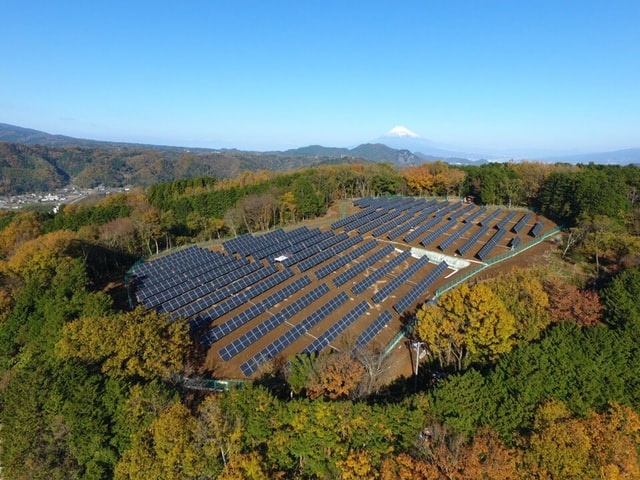
- Sustainable Planet -
- 4mins -
- 62 views
Japan and South Korea Pledge To Be Carbon Neutral By 2050
In the same week, government officials in the two traditionally fossil-fuel reliant economies announced targets for carbon neutrality by the year 2050.
Japan and South Korea announce 2050 climate change targets
Japan is aiming to cut greenhouse gases to zero by 2050 and become a carbon-neutral society, Prime Minister Yoshihide Suga said on Monday 26 October as he unveiled a major shift in position on climate change. Then on Wednesday 28 October, President Moon Jae-in of South Korea, one of the world’s most fossil-fuel reliant economies, said the country will go carbon neutral by 2050.

Japan’s target of no greenhouse gases emissions by 2050 brings it into line with the EU
“Responding to climate change is no longer a constraint on economic growth,” Japanese Prime Minister Yoshihide Suga said in his first policy address to parliament since taking office last month.
“We need to change our thinking to the view that taking assertive measures against climate change will lead to changes in industrial structure and the economy that will bring about great growth.”
Japan’s target of no greenhouse gases emissions on a net basis by 2050 brings it into line with the European Union, which set a target of being carbon neutral by that same date last year. Chinese President Xi Jinping in September pledged to make his country “carbon neutral” by 2060.
Japan is the world’s fifth-biggest emitter of carbon dioxide, and while steps are being taken to increase renewable energy, it also plans to roll out new coal-burning power stations, according to Reuters.
To achieve its goals, Suga said new solar cells and carbon recycling would be key, and Japan would intensify research and development in those areas, along with digitalising society – a policy he has pushed since taking over from Shinzo Abe.
Source: Reuters

A positive step in the right direction after Korea’s Green New Deal announced in July
Later that week, Reuters reported from Seoul that President Moon Jae-in of South Korea said his country will go carbon neutral by 2050. “Together with the international community, we will actively respond to climate change and target carbon neutrality by 2050,” South Korean President Moon Jae-in said in a speech in parliament.
Moon pledged to spend 8 trillion won ($7.10 billion) on an earlier announced “Green New Deal” aimed at creating jobs and helping the economy recover from the coronavirus fallout by replacing coal dependence with renewables.
The plan also includes remodelling public buildings, creating urban forests, recycling, establishing a foundation for new and renewable energy, and creating low-carbon energy industrial complexes to reduce reliance on fossil fuels.
The United Nations and the environmental groups welcomed South Korea’s commitment to net-zero emissions.
“This is a very positive step in the right direction after Korea’s exemplary Green New Deal which was announced in July,” U.N. spokesman Stephane Dujarric said in a statement.
“We expect that this important pledge leads the Korean industry to swiftly shift from fossil fuels to a 100% renewable based system,” Jude Lee, Program Director of Greenpeace East Asia said in a statement.
First proposed by Moon’s ruling party ahead of the parliamentary election in April, the plan set ambitious goals of net-zero emissions by 2050, an end to funding of overseas coal plants, and introduction of a carbon tax.
Coal makes up 40% of South Korea’s electricity mix and renewable power less than 6%, making carbon dioxide emissions per capita are among the highest in the region.
Source: Reuters

Xi Jinping says China will aim for carbon neutrality by 2060
In September, China pledged to end its contribution to global heating and achieve carbon neutrality by 2060, in a huge move for global climate action.
In what came as a surprise announcement to the UN general assembly, President Xi Jinping said China would adopt “more vigorous policies and measures” to increase its climate goal and peak carbon dioxide emissions before 2030.
“The Paris Agreement on climate change charts the course for the world to transition to green and low-carbon development. It outlines the minimum steps to be taken to protect the Earth, our shared homeland, and all countries must take decisive steps to honor this agreement,” President Xi said in a recorded video message.
He called on all countries to “seize the historic opportunity” of scientific and technological innovation and recover green from the the coronavirus pandemic.
Source: ClimateChangeNews


